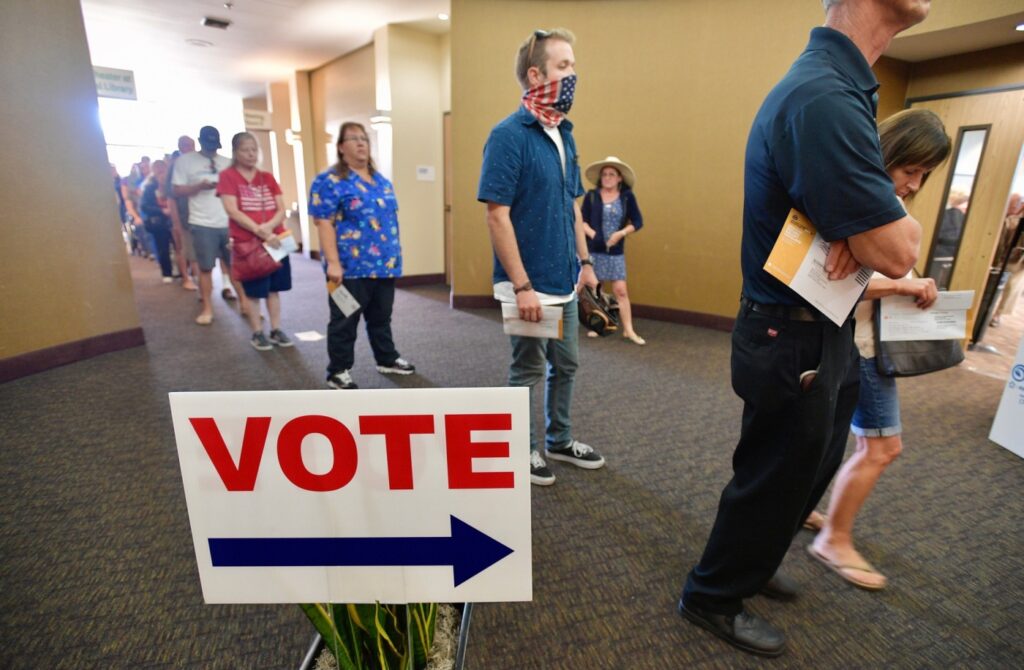
Voters will be seeing double on their June 7 primary election ballots due to a frantic, last-minute change to California law to bring the state into compliance with the United States Constitution.
The double-vision at the top of the ballot will be two races for U.S. Senate, not for two separate senators, but for the same senator twice. Sen. Alex Padilla is running in a special election to complete the term of Kamala Harris, who resigned early in 2021 to be sworn in as vice president. Padilla is also running for election to a full six-year term.
When Harris resigned, Gov. Gavin Newsom held what he called a “cattle call” for politicians who wanted to be appointed to the Senate. He eventually chose Padilla to fill the seat through the end of Harris’ term in January 2023.
But there was a problem. Although state law allowed the governor’s appointee to complete the term, the Constitution has specific requirements for filling vacancies in the Senate, and California law did not comply with them.
Until 1913, U.S. senators were chosen by the state legislatures. This changed with the adoption of the Seventeenth Amendment, which provided for the popular election of each state’s representatives in the U.S. Senate. The amendment also established procedures for handling vacancies: “the executive authority of such state shall issue writs of election to fill such vacancies,” it states, but also allows “the legislature of any state [to] empower the executive thereof to make temporary appointments until the people fill the vacancies by election as the legislature may direct.”
Two federal appellate court decisions in 2010 and 2020 called into question whether California was required to hold a special election to fill Harris’ vacant Senate seat.
In November 2008, then-Sen. Barack Obama resigned from the Senate after winning the presidency. Illinois Gov. Rod Blagojevich — who memorably declared, “I’ve got this thing, and it’s golden” — appointed Roland Burris to fill the vacancy.
Two Illinois voters sued in 2009, seeking to force Blagojevich to “issue a writ for a special election to be conducted as soon as practical.” They lost in the district court but appealed to the 7th Circuit Court of Appeals, which eventually ruled, in the case known as Judge v. Quinn, that the state must hold an election to fill the vacancy, even if the governor has made a temporary appointment.
In 2020, the 9th Circuit Court of Appeals ruled in an Arizona case, Tedards v. Ducey, “that the duty to call an election might not apply if the vacancy happens so late in the term that it is not feasible to hold an orderly election quickly enough that the elected Senator will serve for more than a de minimis period of time.”
These cases called into question whether California’s law allowing a temporary appointee to serve out the remaining two years of Harris’ term was constitutional. But rather than call a special election quickly, Newsom and the Legislature scrambled to pass a law to schedule the special election concurrent with the 2022 regular election. Assembly Bill 1495 also requires the special election and the regularly scheduled Senate election to be at the top of the ballot, supposedly in the interest of minimizing voter confusion.
It would be better if California law required a special election to fill Senate vacancies when they occur. “Golden” things and “cattle calls” are no substitute for democracy.
